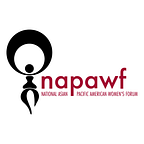What’s Keeping My Family Apart This Lunar New Year
This weekend, as I got up to put new clothes on and give pocket money to my excited young daughter, I could not help but think about what was missing. Lunar New Year has been a cherished tradition in my family for years, passed down through my parents. As an immigrant born in South Korea, this generational tradition is how I honor my heritage and my parents, especially now as I raise my daughter. But as my parents grow older, it becomes progressively harder to imagine the day when they will come live with us because the lack of affordable health care in the United States for immigrants is keeping them on the other side of the world.
Throughout my early childhood, I often saw my grandparents as my own parents, sometimes living with them. Like many Asian American and Pacific Islander (AAPI) families, we grew up with the support and love of our extended family members as they shared and reciprocated caretaker roles. This is a cultural norm for us: AAPIs are twice as likely as white families to live in multi-generational family households, with 28 percent living with at least two adult generations in the same household in the U.S.
Much of this is credited to our culture, but it also reflects how AAPIs have immigrated to the U.S. It is in our tradition and our values to stay together as a multigenerational family. I was the first in my family to immigrate to the U.S. for college, and now I want my parents to join me so my daughter can enjoy the same family structure I had growing up.
Instead, the lack of affordable health care options is another obstacle in the already long and complicated U.S. immigration process. If I petitioned for my parents’ visas, I know that it could be several years before they receive a green card, otherwise known as lawful permanent resident status. Under current law, immigrants must then wait an additional five years after obtaining a green card before they are eligible for Medicaid or Medicare. In the U.S. right now, more than two million AAPI women are left uninsured. Without access to these programs and other insurance, immigrants, particularly immigrant women and girls, are forced to pay out-of-pocket for necessary health care.
Under the Trump administration, it’s clear that raising every obstacle to the immigration of non-white people is exactly the point. Just this week, the State Department released a new policy to racially profile pregnant or potentially pregnant Asians traveling to the U.S. in a sexist and racist effort to thwart their entry. This is on top of the administration’s parallel effort to ensure immigrants coming to the U.S. can either obtain health insurance within 30 days of arrival or prove that they can foot the bill for medical expenses in order to be on track to receive a green card in the first place. Neither of these rules comes with clear procedures on how information about whether someone is pregnant or could get health care should be obtained, making travelers and immigrants vulnerable to coercive and invasive methods of enforcement that strike at our dignity and agency as human beings. This administration has been relentless in its intimidation tactics and we need to be bold and impactful in response to these attacks.
That’s why I’m calling on Congress to pass the Health Equity and Access under the Law (HEAL) for Immigrant Women and Families Act. This bill would remove the five-year ban on Medicaid and Medicare and allow undocumented immigrants to buy insurance through the Affordable Care Act, opening up access to health care to women and families who have been forced to go without.
If passed, the legislation would be a groundbreaking step forward in unraveling policies that have kept health care out of the hands of immigrant communities. Especially for my aging parents, being able to get needed health care is critical, not only for their health, but also for our ability to create the family structure our culture and traditions value. I look forward to the day when my family is reunited and want to be confident that will be true for many years to come. Being healthy should never depend on immigration status.
I know personally how the pathway to citizenship is becoming increasingly narrow. I have seen our government intimidate and threaten families like mine. Making it more difficult for immigrants to get health care is just another way of expressing that our families are different or don’t belong.
As a Korean-American woman, I know that keeping extended family members close is how we prevent generational ties from being cut. I’ve planted my roots here. My daughter and I both deserve to feel safe and have agency over our lives, including our family formation and including the ability to stay healthy and get care when we’re sick.
